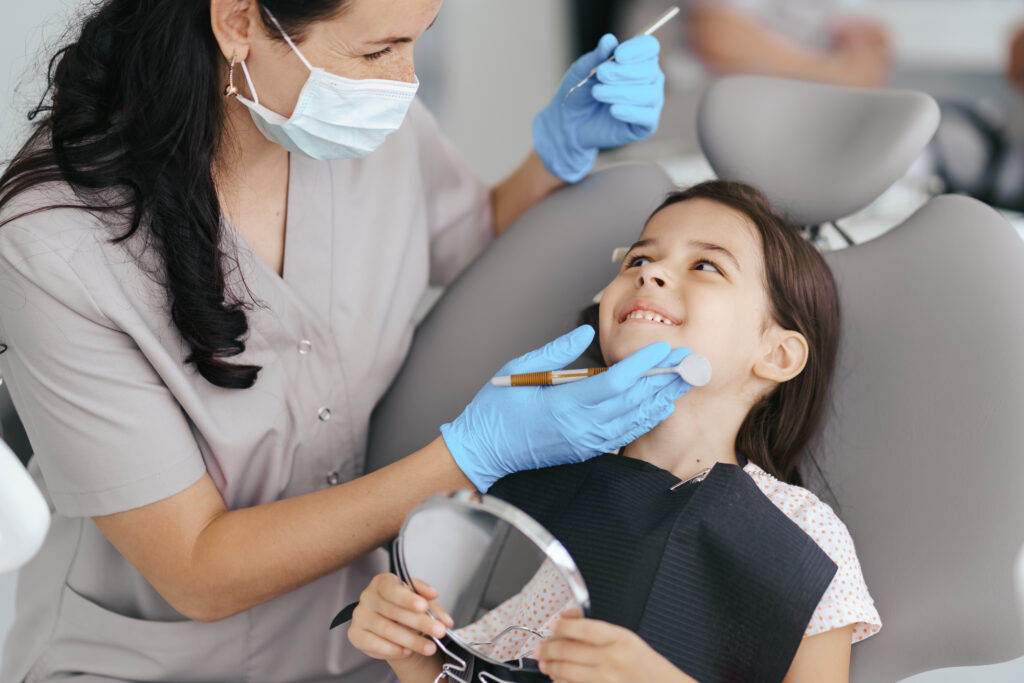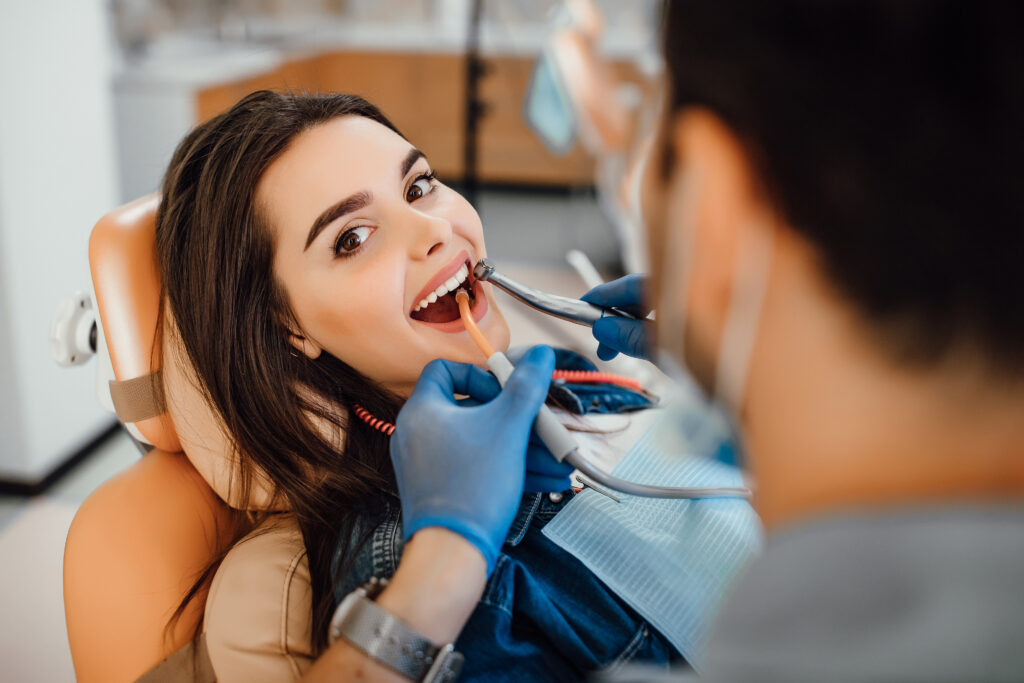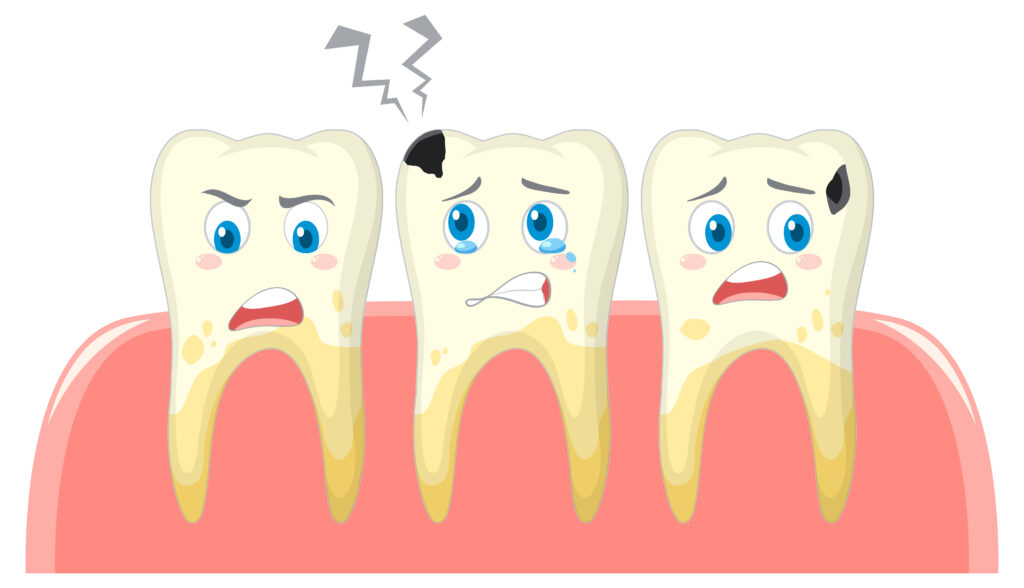Introduction
In the bigger picture of overall health, nothing is more important than maintaining optimal oral health. In the process, the specter of tooth decay creates large, seemingly harmless areas in our teeth that, if left unattended, can turn from minor discomfort into serious dental problems. When trying to create brighter, healthier smiles, our curiosity is often aroused by a pressing question: can tooth decay really be transmitted from one person to another? This comprehensive study takes us on an educational journey through the complexities of this topic, using the insights of dental experts to shed light on the potential for tooth decay.
Debunking the myth: tooth decay is not contagious
Given the prevailing opinion, it is very important to understand that tooth decay itself is not contagious.
Tooth decay is the result of a combination of factors, including poor oral hygiene, a diet high in sugar, and the presence of certain strains of bacteria in the mouth. Among these microbial inhabitants, Streptococcus mutans takes center stage and sets in motion the chain of events that leads to tooth decay. However, the most important thing to understand is that the spread of caries from one person to another is not related to the direct transmission of what we consider an infectious disease.
Understanding Germ Transfer
While the cavities themselves are not spread from person to person, the bacteria that cause them are spread from person to person. This microbial exchange occurs through the act of sharing saliva, a behavior as common as sharing dishes or as intimate as a passionate kiss. Even the seemingly mundane act of blowing food to cool it before feeding it to your baby can contribute to the spread of germs. This phenomenon is more pronounced in children, whose changing oral ecosystems make them more susceptible to colonization by cavity-associated bacteria. Recent studies have delved into the dynamics of bacterial transmission within households. A study in the Journal of Dental Research made an exciting discovery: family members, especially parents, play a major role in the exchange of oral bacteria, including those involved in cavity formation. The study reveals the fact that everyday activities such as dishes, toothbrushes and even affectionate gestures can cause the spread of these bacteria.
It is important to recognize that germ transfer is a natural part of human interaction and reminds us of our interconnectedness. The saliva that carries these bacteria is exchanged in various daily activities, whether eating together or talking. However, it should be emphasized that this transfer of bacteria is not a manifestation of direct transfer of the cavity itself.
The role of genetics
Complex genetics also influence an individual’s susceptibility to caries and the resulting bacterial dynamics. Scientific research has revealed the intriguing fact that our genetic makeup influences our tendency to develop cavities. If you have a family history of tooth decay, you may have a genetic predisposition that exacerbates your vulnerability. However, it should be emphasized that this genetic influence does not cause infectiousness in dental lesions. Research in the world of genetics and oral health reveals a fascinating interplay between our genes and tooth decay. Genetic variation can affect factors such as tooth enamel strength, saliva composition and even the balance of oral bacteria. These genetic components act synergistically with extrinsic factors such as diet and oral hygiene habits to contribute to an individual’s overall susceptibility to caries.
Prevention and good oral hygiene
Now that the myth of contagious tooth decay has been established, let’s delve into the proactive measures that can protect against cavity formation and advocate for optimal oral health:
Regular brushing and flossing: Consistent, thorough oral hygiene habits are the foundation of caries prevention. Regular brushing and flossing are like tough soldiers that remove food particles, plaque, and cavity-causing bacteria from your mouth. Learn to brush your teeth at least twice a day and floss once a day to keep your oral environment clean. Limit sugary foods and drinks: Cravings for sugar provide a potential playground for bacteria that can cause cavities. By cutting out sugary foods and choosing nutritious dietary alternatives, you can significantly reduce your risk of tooth decay. Regular dental checkups: Regular visits to the dentist are the cornerstone of maintaining optimal oral health. Regular checkups and professional cleanings provide an early warning system for potential dental problems so that early intervention can be initiated. These visits allow your dentist to identify emerging problems and develop prevention strategies.
Use of fluoride
The hero in the fight against caries is fluoride, a natural mineral with strong protective properties. It strengthens tooth enamel and forms a strong defense against the acid-producing bacteria that cause tooth decay. By including fluoride toothpaste in your daily oral care routine and considering additional fluoride treatment as recommended by your dentist, you can provide your teeth with a layer of protection. Eating healthy: The derivative effects of dietary choices extend far beyond general health and include oral health. A diet rich in fruits, vegetables, whole grains, and lean protein can provide a rich source of essential nutrients and improve overall oral health. These nutritious ingredients support the vitality of teeth and gums and strengthen your defenses against the imminent threat of tooth decay.




